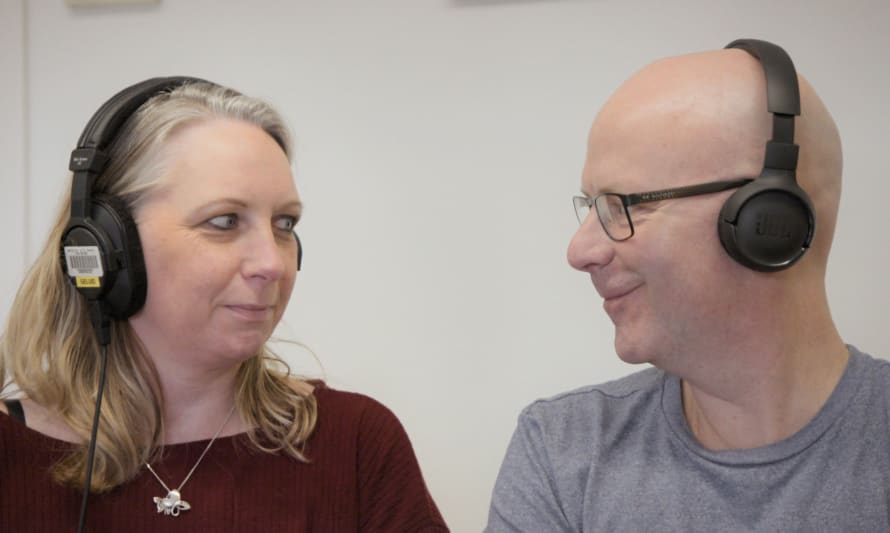
Deepfake Therapy: from therapeutic experiment to documentary
Deepfake Therapy is one of these films that leaves you with more questions than answers. Roshan Nejal's powerful documentary - a must-see at this year's festival - shows how a controversial technology can be used for good. The director explains here the origin of the project, and the work that went into it.
By Roshan Nejal:
Don't we all seek comfort and shelter in fictional realities like books, films, art, religion? Driven by the urge to speak to my deceased grandmother, I invented this Deepfake construction. Not long after, my invention was adopted by renowned grief therapists who were seeing it as a serious therapeutic tool. Deepfake Therapy shows the result of this very first therapeutic experiment in the process of grief.
Nani
It was six years ago that my dear grandmother, Nani, died from an unexpected heart attack. The fact that life could suddenly end was very hard to deal with. Thanks to my religious background, I found comfort in the idea that she was living on in ‘Swarg’ (the Hindu Equivalent to Heaven), and I often spoke to her in my prayers. But there was a problem. My prayers to Nani were a one-way stream. I would really love it if Nani was able to speak back to me. To hear from her that she’s proud of how far I made it in life.
The idea
I came across a technique called ‘deepfake technology’, a new method to manipulate videos. This technology can simulate people’s mouth movement, having them say anything you want them to say (often used to create fake news). I realized that, with this technique, it might be possible to have a video call with heaven and speak with Nani again.
The development of the therapeutic experiment
I found and developed a trusting relationship with professors of ‘Computer Vision’ at the University of Amsterdam who gave me unique access to their deepfake software. Using this software, I developed the illusion of a real-time video call with a deceased loved one.
Shortly after this I met up with Leoniek van der Maarel, a grief therapist and psychologist and a member of a well known association of psychology, the NVPA. Leoniek has over 20 years of experience in grief therapy and was convinced of the benefits of this software for use in therapy sessions. Suddenly, my film crew and I realized we were on something much bigger. This could perhaps be a new and officially acknowledged therapeutic method. The crew and I worked very hard to perfect the construction. The results were beyond our expectations. Despite the fact that the video was very jerky and the voice did not match my grandmother’s voice, I really saw and heard Nani speaking to me! This was the moment I realized how sensitive we are to beautiful illusions, to ignore the facts and, for a brief moment, accept fiction for reality.
After this success, Leoniek proposed to try this method under her therapeutic supervision with real clients. All the clients were volunteers, and were fully aware of how the illusion was created. We left her in charge and in that way she became a character in the documentary. By handing over my invention to a grief therapist, I was able to fully focus on my own craft again: telling meaningful, cinematic stories about the complex world we live in.
The audiovisual concept of the documentary
Because we encountered a major ethical dilemma in the process of making the documentary (namely: can you show deceased people on the big screen when they say things they never said?), this documentary offered me an excellent opportunity to investigate my question regarding cinematic minimalism. Not only is the front of the laptop screen not visible for the audience. A bare, white wall was chosen as a background. The camerawork is static and simple. The editing is business-like and non-emotional. The sound design is minimalistic and there is no music used. No obvious influence on the emotions of the audience through the cinematic box of tricks, but rather serving this experiment as raw, unbiased and pure as possible. That is Deepfake Therapy.
To watch the film, head over to our virtual festival. Deepfake Therapy is part of our Mid-length competition and is available until 31 May to viewers in the UK and Northern Ireland with a Short Film Pass or a Flatpass
